Andrzej Żuławski: Acting Out Madness
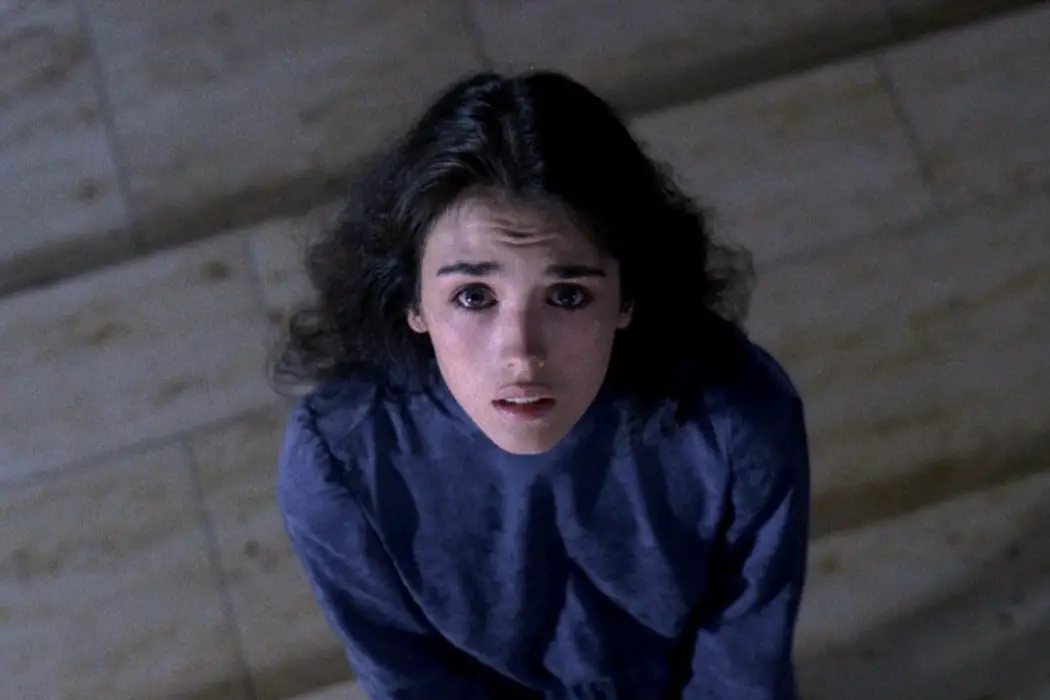
I've been a film lover since being traumatized by "The…
For the first time ever, the renowned cult classic Possession is available to stream. For those of you who have recently had the chance to enjoy this overlooked masterpiece for the first time and are only now singing its praises, welcome to the party. We’ve been expecting you. But the mind behind this film deserves the spotlight as well.
Polish director Andrzej Żuławski’s genius ranks high up with some of cinema’s greats. A while back, I decided to take a plunge into the mad world that is Żuławski. What I found was not only an impressive body of work, but a profound artist who spent most of his career railing against government-enforced censorship, refusing to sacrifice his vision.
A Demonic Cult Classic
I first encountered Żuławski through Possession, many years ago. It popped up on a few online lists of cinema’s greatest hidden treasures and a Facebook page dedicated to movie artwork had posted its original 1981 poster: a pastel sketch of a naked woman being devoured by a Medusa-like swarm of tentacles. I read that its lead, French star Isabelle Adjani, had won the best actress prize at Cannes for her performance.
Despite being one of the most talked-about movies in many online film communities, Possession was not on any of the major streaming services. After much searching, I was able to watch it on a gray website after clicking through about a dozen pop-up ads.
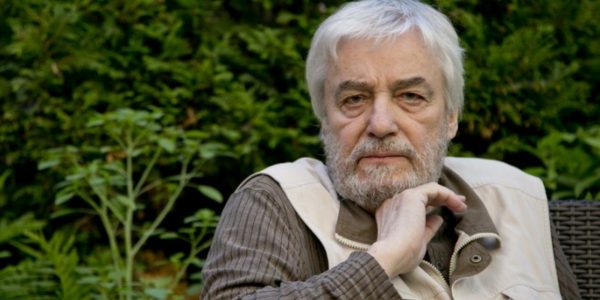
The film opens on a breakup. A married couple, Anna and Mark (played by Adjani and Sam Neill), lie side-by-side in bed, naked and under the covers, not looking at each other as they discuss their separating. There is an intensity to their language. Their despair is potent. Later, Neill’s character enters a board room to meet with other businessmen about an unclear assignment. The camera rotates 360 degrees around the room, finally landing on one businessman who asks Neill, “Does our subject still wear pink socks?”
Neill and Adjani’s characters then meet at a cafe, where their heated argument turns violent, and Neill throws several tables out of his way as he chases after Adjani. We then get several scenes of domestic violence back at their apartment, with each actor running in and out of rooms, shrieking their lines at one another. “Bat-shit crazy” is too soft of an expression to describe them. Adjani slaps Neill and then we get the now famous static closeup of Adjani’s face as it slowly morphs from a fearful whimper to a demonic smirk. We haven’t even arrived at the gruesome miscarriage scene or the squid monster yet.
Possession forever changed my perception of just how thrilling an arthouse film could be. It is a strange and compelling cinematic tour de force, too brilliant to be considered campy, that is impossible to shake off. While so many horror films get under your skin and seep into your dreams with images, Possession does so with shocking images attached to equally charged feelings. Żuławski uses the basis of a breakup, with the execution of a surreal nightmare, to explore the deepest, most evil impulses we all share.
After being floored by a first-time watch from a director, I naturally want to dive into the rest of their filmography. However, after viewing Possession, I did not go down the Żuławski rabbit hole for two reasons. The first is that Żuławski belongs to the long list of brilliant international auteurs whose work is disappointingly not readily available. The second reason is that I was more drawn to the performances and instead sought out the works of Isabelle Adjani and Sam Neill.
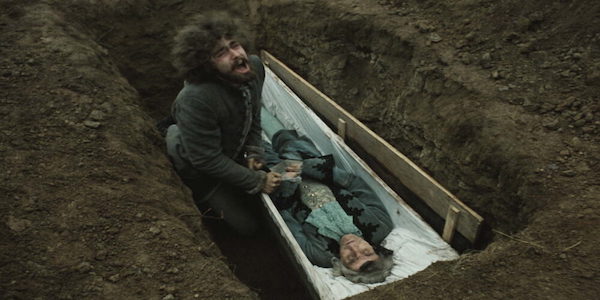
Unlike many films by other great auteurs, when watching a Żuławski film you are more inclined to be absorbed by the acting rather than the directing. The specific types of performances Żuławski gets from his actors are a vital ingredient that gives his films their undeniable power.
Overacting is now synonymous with being awful, or at least being fake. Modern audiences tend to be impressed by subtly. Subtly is something you will never get in a Żuławski-directed performance. Throughout his filmography, we are served a feast of actors shouting lines, twitching arms, cavorting torsos, grinding teeth, and bursting out in rage. Instead of just expressing an emotion, his actors often act as if they are being pumped full of it, about to explode. They make an older Al Pacino or a younger Jack Nicholson look domesticated.
The Early Years
Andrzej Żuławski was born in Soviet-occupied Poland to a family of accomplished writers, painters, and poets. His father, Mirosław, wrote screenplays and his great uncle, Jerzy Żuławski, authored a series of popular science fiction novels. As a young man, Żuławski worked as an assistant director to the most notable Polish filmmaker at the time, Andrzej Wajda (Ashes and Diamonds), yet Żuławski’s visual style bears more of a resemblance to his Eastern European auteur peers like Wojciech Has (The Hourglass Sanatorium) and Zbyněk Brynych (…And the Fifth Horseman is Fear).
Post-WW2 Polish cinema had a reputation for being bleak, as it often focused on the tragedies of the war and the difficulties that the Polish people faced in the years afterwards; This sentiment sums up most of Wajda’s films. This was not only true of Poland, but of most nations on the east side of the Iron Curtain. By the late Sixties, a crop of new directors brought more color and exuberance to movie theaters although their subject matters continued to focus on topics like despair, madness, and human cruelty.
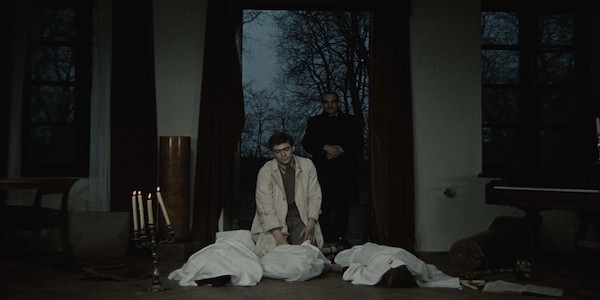
Right from the beginning, Żuławski established himself as an important voice in Polish cinema. His 1971 debut The Third Part of the Night is an immaculately-constructed psychological drama shot with a dreary color palette, an insanely unempathetic score, and a gorgeously grim set design. One of his more plot-heavy films, it tells the story of a “louse-feeder,” a human test subject whose body is used for lice to suck blood that Nazi scientists then use for research. But the film is primarily about a young man’s dissolving soul. Lead actor Leszek Teleszyński has a face ripped from an Edvard Munch painting, with skin that is a pale shade of gray as he watches the world around him crumble.
While his first feature focused on the gradual then sudden spread of moral corruption, his 1972 follow-up depicts a rapid spiral into insanity. The Devil is a beautiful and heartbreaking portrayal of madness and Hell on earth. The film is set in a hostile world full of sinister characters, but it is shown in such an exquisite way that any arthouse fan would happily spend as much time as possible in it. Cinematographer Maciej Kijowski shoots the Polish woods in winter as a stunning barren landscape and lights the dark interiors like a Rembrandt painting.
The Devil is about the persecution of an insane man in a world where everyone acts insane. Teleszyński returns as the lead, playing a wounded soldier who journeys around the Polish countryside during the Prussian invasion of 1793. He is accompanied by a demon in human form, credited as Diabel. Some of the most powerful scenes feature these two characters conversing, reminiscent of Bergman’s The Seventh Seal, with Max von Sydow as another traveler who occasionally stops to play chess with Death. Both Diabel and Death are tour guides, leading both men to the inevitable and challenging their beliefs along the way. In the Bergman film, Death provides no answers. In The Devil, the soldier asks Diabel, “Does the world appear so ugly to me because I am sick or because it actually is such?”. Diabel provides an answer, and as a viewer it is hard not to cringe at its simplicity. It is almost evil.
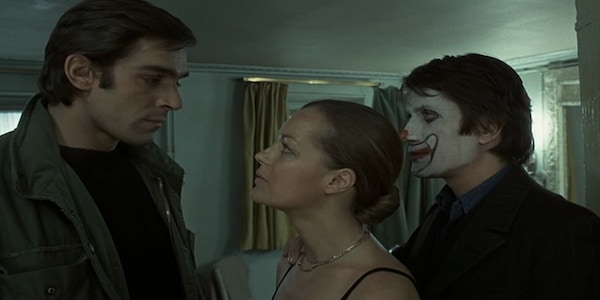
Diabel is played by Wojciech Pszoniak, in what is the first performance to have that special Żuławski touch. Dressed in all black, with a pointed beard, Pszoniak delivers monologues the way a Shakespearian actor would a soliloquy on stage and moves his body like a ballet dancer. Even the way he jumps down from a tree branch to greet the soldier in one scene is fascinating. There is such an easy joy to watching a Żuławski-directed performance, to get to see talented actors use every muscle of their bodies and every ounce of passion in their souls to throw all their energy at an audience in a way that is never overbearing or needy.
The Devil was the first Żuławski film where his vision and style fully came to fruition, and it was the first film to land him in trouble with the Communist government. It was banned before it received a widespread release. Tired of living under a crippling authoritarian rule, Żuławski moved to France to make his next film.
International Projects
That Most Important Thing: Love (1975) is Żuławski at his most gentle and romantic. His first film set in modern times, it follows a young photographer who falls deeply in love with a failing actress. She is married to a lonely, shadow of a man (played with intense severity by Jacques Dutronc), who soon discovers the affair. Thematically, it has nothing in common with his first two features, but that Żuławski tingle is felt in every scene.
It is also a predecessor, a sort of test run, for what would eventually become Possession. Both films involve love triangles, a woman leaving one man for another. Possession is told from the perspective of the man being cheated on, capturing his anguish. Important Thing focuses on the lovers. It is absorbed in their passion, while also acknowledging the pain they are causing. It was directed by a more innocent Żuławski, who had not yet had his heart torn apart. That was about to change.
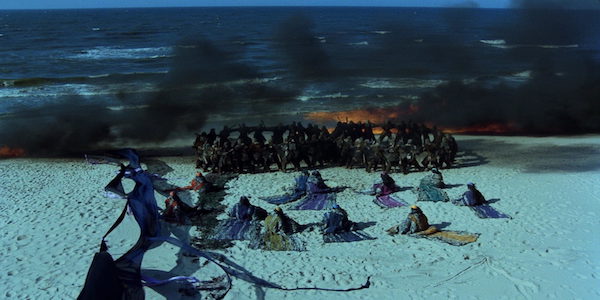
From 1975 to 1978, Żuławski worked on adapting a series of novels, The Lunar Trilogy, authored by his great uncle Jerzy Żuławski. Each book chronicles a different crew of astronauts journeying from earth to the moon and uses the galactic setting to examine the flaws of humanity. Andrzej’s plan was to combine the three books into one epic feature. If only he were able to.
With approximately seventy-five percent of filming completed, the production of On the Silver Globe was canceled for arbitrary reasons by Poland’s newly appointed Minister of Culture. Żuławski was ordered to have all prints, sets, and costumes destroyed. He did not obey. He hid film reels in his luggage and smuggled them out of the country, and he had crew members bury the costumes on the beach which they shot on.
On the Silver Globe could have been the greatest fantasy film ever made. Żuławski was able to release an “amputated” version of it at the 1988 Cannes Film Festival, with long stretches of a voice-over narration filling in the story gaps for the scenes that were never filmed. Critics called it a “ruined masterpiece”, and I don’t think anyone could come up with a more fitting label.
What we have of On the Silver Globe is nothing short of phenomenal and shows Żuławski reaching new extremes. With long, dialogue-driven sequences comprised of philosophical pondering, the film is like Andrei Tarkovsky’s Solaris with an adrenaline kick. But at times, it looks like an episode of the old Star Trek. And like most Żuławski outings, it is spectacularly disturbing and contains grotesque images that will brand themselves into your memory forever.
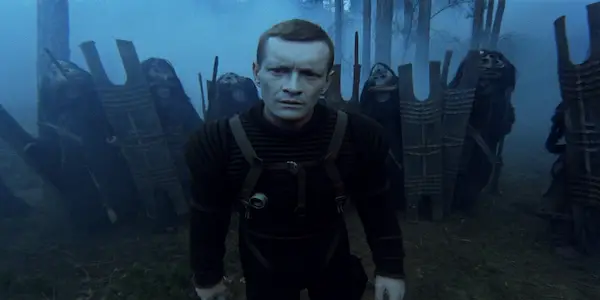
Every Żuławski film has at least one standout brilliant performance, here it is Andrzej Seweryn as the astronaut-turned-false-prophet, Marek. The problem is that the first few acts of his story were never filmed. When his character first appears on screen, Marek is already a deranged ruler. Half of his character arc, and more importantly half of Seweryn’s performance, is missing.
Żuławski does a creative enough job filling in the gaps, but the holes are still felt. Every time Żuławski’s voice-over narration chimes in, the story’s momentum comes to a screeching halt. It doesn’t ruin what is shown, but it breaks the illusion. What Żuławski was able to shoot is amazing, although the experience is frustrating. You want to punch the Polish censor who shut down the production and daydream about what could have been. A cinephile’s reaction to what we have of Silver Globe has more in common with Alejandro Jodorowsky’s nonexistent adaptation of Dune than anything else: an incredible glimpse of what could have been. How often does an arthouse auteur get to make a big, expensive, sci-fi epic? It will probably never happen again. It didn’t even really happen once.
The shutdown of On the Silver Globe saw Żuławski at his lowest point. He was blacklisted from the Polish film industry, and the government even revoked his working papers, thereby preventing him from returning to his prior job as a taxi driver. In his darkest hour, he began to write the screenplay for what would become his masterpiece.
His Masterpiece
Pouring all his despair and distrust for mankind into one haunting allegory, Żuławski’s Possession combines the domestic melodrama of That Most Important Thing: Love, with the gloom of The Third Part of the Night and The Devil and the nastier supernatural elements of On the Silver Globe. In an attempt to get the widespread appeal, Żuławski shot with an international cast speaking English. Possession was a hit at the 1981 Cannes Film Festival, a watered-down version that was released in the US in 1983, and then it faded into obscurity.

Żuławski continued his career in France. As he went along, his films began to focus less on big themes and more on the minutiae of filmmaking along with the male-to-female dynamic. His 1984 film The Public Woman does not feel nearly as personal as his earlier work but has a surprising amount of undisguised navel-gazing. It tells the story of a young actress who gets trapped in an abusive relationship both on and off set with her director, Kessling (played by one of Żuławski’s best actors Francis Huster). The actress endures psychological turmoil for the opportunity to be considered a great artist. The film that the characters in The Public Woman are shooting is called “The Possessed,” a period piece that looks an awful lot like The Devil. “The Possessed” is said to be an adaptation of the Fyodor Dostoevsky novel Demons, and Żuławski’s following film Mad Love would be a loose adaptation of Dostoevsky’s The Idiot. With these uncanny parallels, it is impossible not to read this film as Żuławski taking a hard look at himself, his life’s work, and his past collaborations with actors.
The Performances
If it is the acting that often gives Żuławski’s films the wild kinetic force that makes them so special, then it is worth exploring how he gets performances this specific and of this magnitude.
While Possession contains numerous moments of raw violence and madness, the most chilling sequence, which has haunted me for all these years, is the ballerina scene. After their breakup, Neill’s character watches a film reel of Adjani teaching a ballet class, shouting commands at a barre of children in leotards. Adjani forces one student, a girl no more than twelve years old, to hold an uncomfortable pose. The girl begins to hyperventilate in pain, on the verge of screaming. Adjani tells her to “hold it, hold it,” but stares directly into the camera, directly at Neill, and directly at us. After the student runs out of the room crying, Adjani stares back into the camera, with her piercing dark-blue eyes, and gives a short speech about understanding one’s own limitations. She finishes by saying to Neill, “That’s why I’m with you, because you say ‘I’ for me. Because you say ‘I’ for me.”
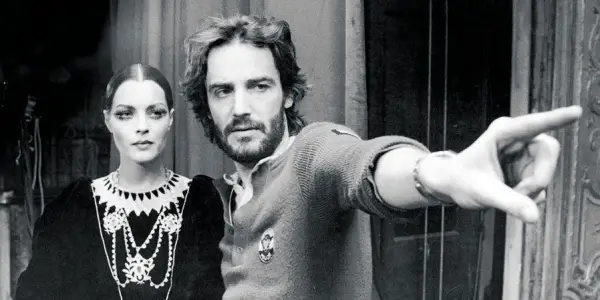
The ballerina scene may be the clearest window into how Żuławski works with actors. In Possession, Adjani delivers not only the best performance in a Żuławski movie but what many have praised as one of the greatest of all time. Żuławski’s treatment of Adjani has become the subject of controversy, comparable to Stanley Kubrick’s treatment of Shelley Duval on the set of The Shining. After seeing a rough cut of the film, Adjani ran into a bathroom and attempted to slit her wrists.
Żuławski pushes his actors to hellish extremes until they hit their breaking points and learn their limitations. He has them “hold it” so they get lost in the madness and drown in the emotion. With this much total guidance, Żuławski in a way becomes the actor. He wants to say “I” for them.
The Kessling character in The Public Woman is a manipulative, violent, sadistic, offensive brute. While it is hard to imagine Żuławski thinks this low of himself, this vulgar self-depiction may be his penance and even a bit of self-flagellation.
His next film Mad Love, released in 1985, opens on a gang of violent youths on a crime spree that is like a retro 80s version of A Clockwork Orange, then shifts focus to yet another love triangle. The acting is over-the-top to the point that it is almost a parody of Żuławski’s style. However, even a tired and messy Żuławski film is still a wild ride that’s always worth going on.
With the collapse of communism in Eastern Europe just around the corner, in 1988 Żuławski was able to give both On the Silver Globe and The Devil theatrical releases. He spent the rest of the 80s and 90s making arthouse films that shared the style of his early work but did not leave the same impact. In 2015, after a fifteen-year hiatus, he directed his last movie, Cosmos. It has everything you would expect from him, but shares many of the same problems as Mad Love. Sadly, he did not go out on a high note, but at least he went out on his terms. He died the following year at age seventy-five.
There will never be another Andrzej Żuławski. He was able to take his pain, and even his own wickedness, and turn it into some of the most insane, unholy, vile, and beautiful cinematic achievements that have stood the test of time. Possession is finally getting the attention and accessibility it has long deserved. Hopefully in time, the same will be said about his other works.
Possession is now streaming on Shudder and many of Żuławski’s other films can be found on EasternEuropeanMovies.com.
Does content like this matter to you?
Become a Member and support film journalism. Unlock access to all of Film Inquiry`s great articles. Join a community of like-minded readers who are passionate about cinema - get access to our private members Network, give back to independent filmmakers, and more.
I've been a film lover since being traumatized by "The Shining" at age six. I graduated from Temple Film School and live in Boston now. I am interested in director-driven cinema and exposing the public to lesser known auteurs. I also do private script coverage.













